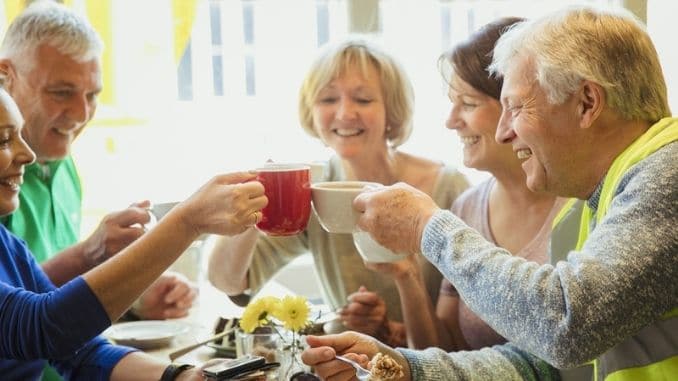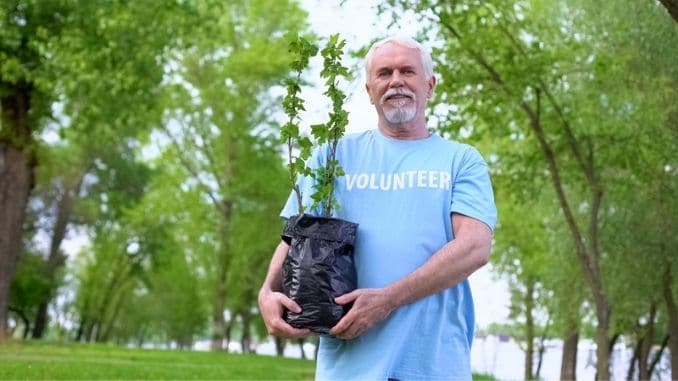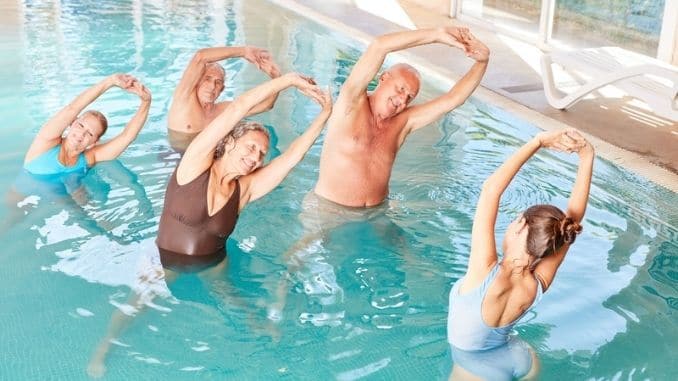Social connections help us stay healthy no matter what age we are, but recent research has shown that they're particularly important for seniors. With age, we often lose many of the social connections we've enjoyed over our lifetime. We retire and no longer have daily interactions with our colleagues. Our children grow up and leave home and are no longer daily companions. Other dear friends and relatives experience health problems and sometimes pass away.
As the years tick by, it’s easy to find ourselves feeling more isolated and alone than ever before. This is dangerous. Research has linked social isolation and loneliness to higher risks for high blood pressure, heart disease, obesity, a weakened immune system, anxiety, depression, cognitive decline, Alzheimer’s disease, and even death.
On the other hand, those seniors who make the effort to maintain as many social ties as they can while developing new friendships and engaging in new social opportunities fare much better. Research shows that they have higher levels of physical activity, greater positive moods, and fewer negative feelings. They also enjoy a reduced risk for depression, cardiovascular problems, osteoporosis, cognitive decline, some cancers, and even death, with the more socially active tending to live longer.
The Centre on Aging at the University of Manitoba in Canada published a study in 2013 showing the many benefits of social activity for seniors. Specifically, they found that seniors decreased their risk of developing a disability by 43 percent over an average of 5 years for each additional social activity engaged in. The risk of cognitive decline was reduced by an average of 70 percent in older adults who were frequently socially active compared to those who weren’t.
Staying as socially active as possible, therefore, is a goal we'd all be wise to pursue as we enter our golden years. Below, we have several ways you can do that.
1. The Health Benefits of Volunteering for Seniors
Volunteering is often extremely rewarding because not only do seniors get the benefit of social interaction, they are also able to use their skills and insights to help others. At a time when many seniors can feel like they’re not needed or are a burden to society, volunteering can help them realize how much they still have to offer.
In a 2019 report by AmeriCorps, researchers found that consistent volunteering improved the health and well-being of people aged 55 and older. Volunteers reported much higher health scores compared to seniors who didn't volunteer and were significantly less depressed and isolated. Plus, since they were helping young people and the elderly, they were making a significant difference in their communities.
To find volunteering opportunities, check out these resources:
- AmeriCorps Seniors Programs
- Seniors at National Parks
- The Peace Corps
- Meals on Wheels
- Feeding America
- Canine Companions for Independence
- Habitat for Humanity
- The USO
You can also ask your local hospital, library, museum, or Humane Society if they need help, as they likely do!
2. Why Seniors Should Go Back to School
Contrary to the cliché, old dogs can learn new tricks and should make a point to do so. Challenging the brain to step out of its comfort zone and meet a new challenge is one of the best ways to ward off cognitive decline.
Scientists used to think that brain growth stopped in adulthood, but recent studies show that’s just not true. We can still encourage new brain cell growth even in late adulthood by learning and acquiring new information and experiences.
For a study published in 2013, adults aged 60 to 90 were split into two groups:
- Group one learned a new complex skill like quilting or digital photography.
- Group two worked on simpler activities like crossword puzzles.
Three months later, the “complex skill” group showed wide-range improvement in overall memory compared with the crossword puzzle group.
When you learn something new, you force the brain to create new connections—like new highways between small towns. These new connections then encourage overall brain health and flexibility. The important thing is to tackle something new to you. Learn a new language, how to play an instrument, or a new computer program you've never tried before.
According to the National Center for Education Statistics, about 17 percent of adults over the age of 35 were enrolled at a four-year college or university in 2016. Today, more campuses than ever before are offering free or discounted tuition for seniors, creating more opportunities for older adults to expand their horizons.
Check with your local community college or university for potential classes, or see if your local library offers any free personal or professional courses. There are also many online resources offering free courses, including the following:
- MIT OpenCourseWare at the Massachusetts Institute of Technology
- com (check for educational opportunities in your state)
- org
- com
- org
- edX
- iTunes U
- Khan Academy
- com
- Open Learning Initiative
- TedEd
- edu
3. How Seniors Can Get Social with Exercise
Staying physically active as we age is critical to good health. You can kill two birds with one stone, as they say, by combining your exercise with your social activity. Dance classes are great options, as dancing is good exercise but also a lot of fun. Studies have also shown that dancing can increase cognitive acuity, and may prevent or delay the onset of Alzheimer’s.
Water aerobics is another good choice because it’s easy on older joints. Classes provide a low-impact alternative to traditional cardiovascular exercise, and they also include resistance training to help tone muscles and improve overall function. Making friends with your classmates is a bonus.
Your local gym, fitness club, or pool is likely to offer these sorts of classes. If you're not into joining a class, try getting your friends together for a mall walk a couple of times a week, or form a group to take a weekly bike ride. Community gardens also offer a fun way to get involved with others while you move your body for a good cause. Of course, don’t forget your four-legged friend. Taking your dog for a walk qualifies as social too!
4. Seniors Make Great Group Members
With all their life experience, seniors have a lot to offer others. They may not feel like it, though, if they’re living isolated and alone.
Getting involved in clubs in your community is a great way to stay socially active and to share your life experiences with others who would appreciate it. In most locations, there are clubs for just about everything you can imagine. Book clubs are extremely popular among seniors and younger members alike, and they offer a unique opportunity to learn something new while mixing with all sorts of different types of people.
You can find other groups that suit your interests, as most communities have people that get together to quilt, play bingo, take photographs, or play card games. You may also find groups centered around sports like golf, tennis, softball, or even hiking.
Check with your local senior center and/or community center as well as the library for more information. You can also look online at Meetup.com to find unique niche groups that may have interests similar to yours.
5. Seniors Often Find Faith-Based Activities Particularly Rewarding
Faith communities and churches can be particularly helpful to seniors. Religion and spirituality often play a vital role in people’s lives, and this can be especially true for the elderly. Research has shown that religion often correlates with improved physical and mental health, and can also help seniors cope with health problems, personal losses, and life stresses.
A Pew Forum survey found that 70 percent of those 65 and older had a stronger belief in their faith than younger people, indicating that religion becomes even more important to us as we age.
Any faith-based activity offers not only social interaction but a confirmation of value and purpose in life for many seniors. Caregivers can help by making sure their loved ones have transportation to their local church or faith organization, and by assisting those who are unable to leave home with viewing online services.
6. It’s Not Too Late for Seniors to Travel
No matter how much you’ve traveled in your life, you probably have some places you’d still like to see. Yet travel can be more difficult for seniors with health conditions or concerns about being away from their familiar surroundings.
Fortunately, some services can make travel easier. Travel companion services, for example, offer qualified travel companions to accommodate seniors' needs and can be secured through FirstLight Home Care and other organizations like Flying Companions and Senior Travel Companion Services.
Several travel clubs also offer accessible travel opportunities specifically for seniors. These are included below. If you are still game for going on your own, Aging Care also offers travel tips for senior travelers.
- Women Traveling Together
- Kindred Tours
- Singles Travel International
- Evergreen Club
- Vacations by Rail
7. Seniors Enjoy Romance Too
The effect of the death of a spouse on the mortality of the survivor is predictably negative. According to a 2009 study, widowhood increased the odds of death for men by 22 percent and women by 17 percent in neighborhoods with a low concentration of widowed individuals. (It was slightly better in neighborhoods where there were more widows and a higher opportunity for new social engagements).
In a 2012 study, scientists found that spousal loss was linked to a system of mental, social, behavioral, and biological issues and that the effects were often long-term. It’s also been linked with cognitive decline, with scores for widows/widowers consistently more than half a point lower than for their peers who were not widowed.
The Administration on Aging released a recent report indicating that in 2017, about a third of older women (33 percent) were widows, while about 28 percent of noninstitutionalized older people lived alone. Almost half of older women (45 percent) aged 75 and older lived alone.
It’s not always easy to start over again, but spending some time with a new companion often provides many physical and mental health benefits. At the very least, it can help stave off loneliness, which can have far-reaching positive effects.
If you’re ready to venture out once again, you may find opportunities through your local senior center or community center, or even in the other activities, we’ve mentioned here.
You may also want to consider going online. Senior singles now make up one of the fastest growing online dating groups in America, and the market is responding. Several new services make it easy to meet new people in your area, and they're all tailored to seniors.
- eHarmony
- SilverSingles
- EliteSingles
- OurTime
- Senior FriendFinder
- Senior Match

Remember, these are supposed to be your Golden Years, so it is important to do everything you can to have fun and stay positive. Invest in yourself and reap the rewards of increased social opportunities. You are not alone, and we are confident that there are other seniors in your area that would love to meet you…
Discover the best way to regain your flexibility, safely and easily. Click here for more information.












